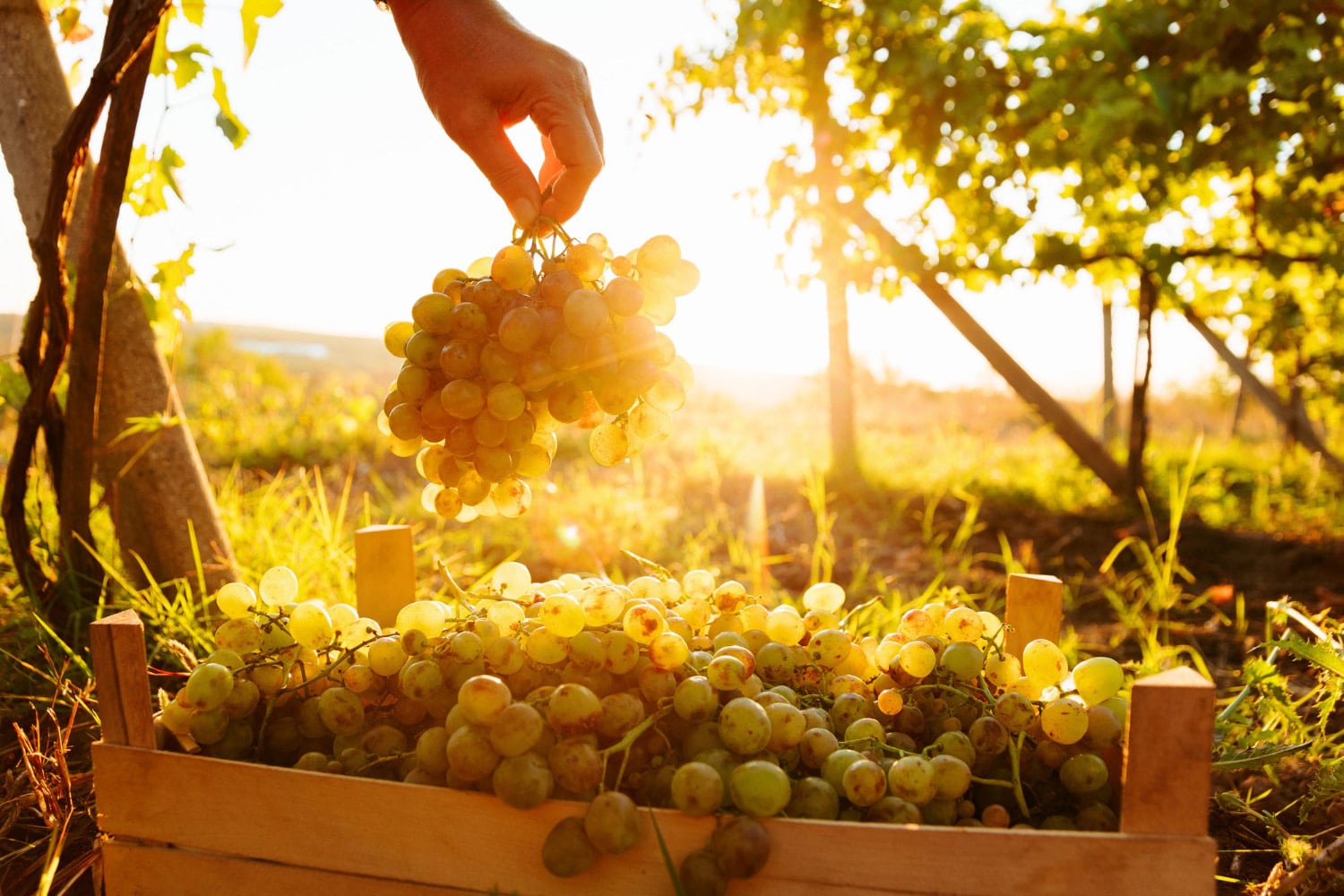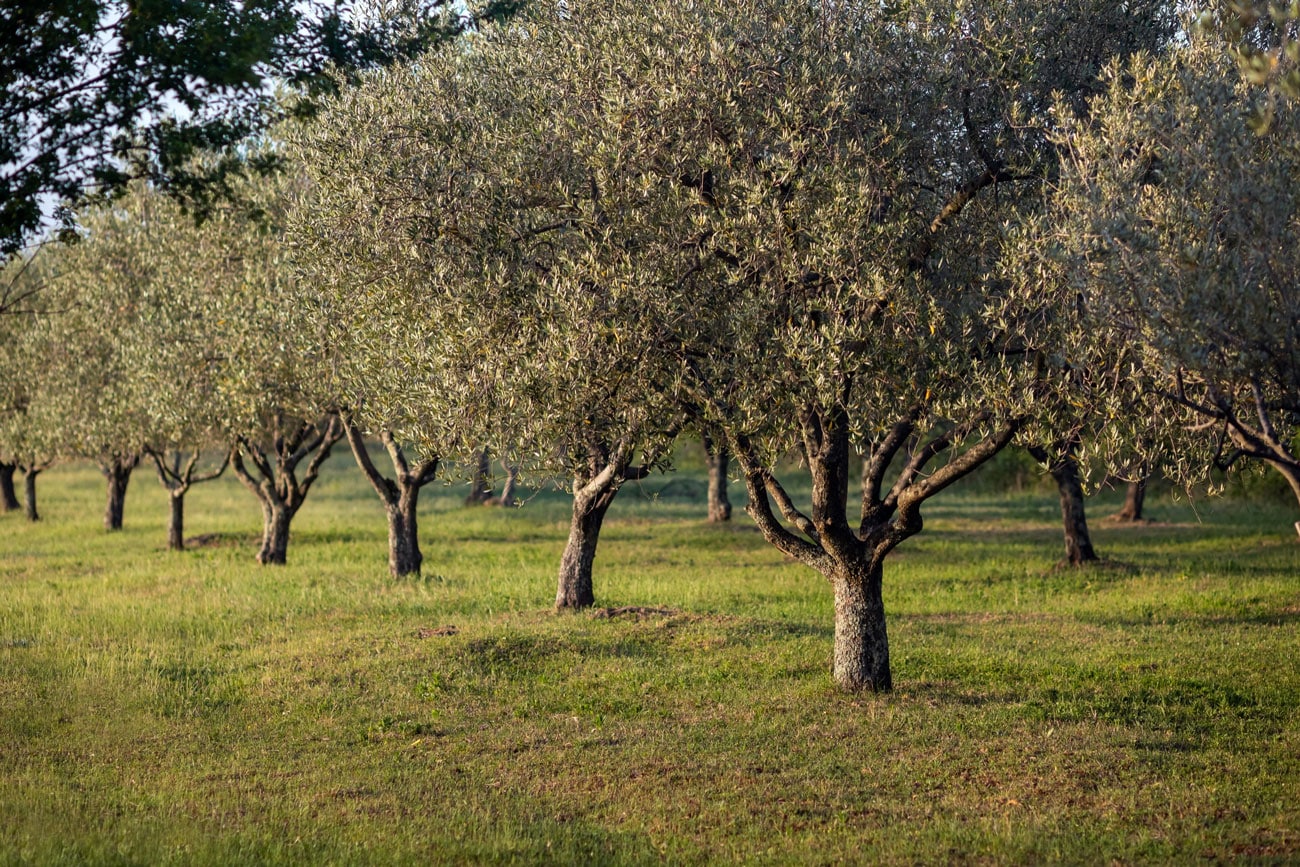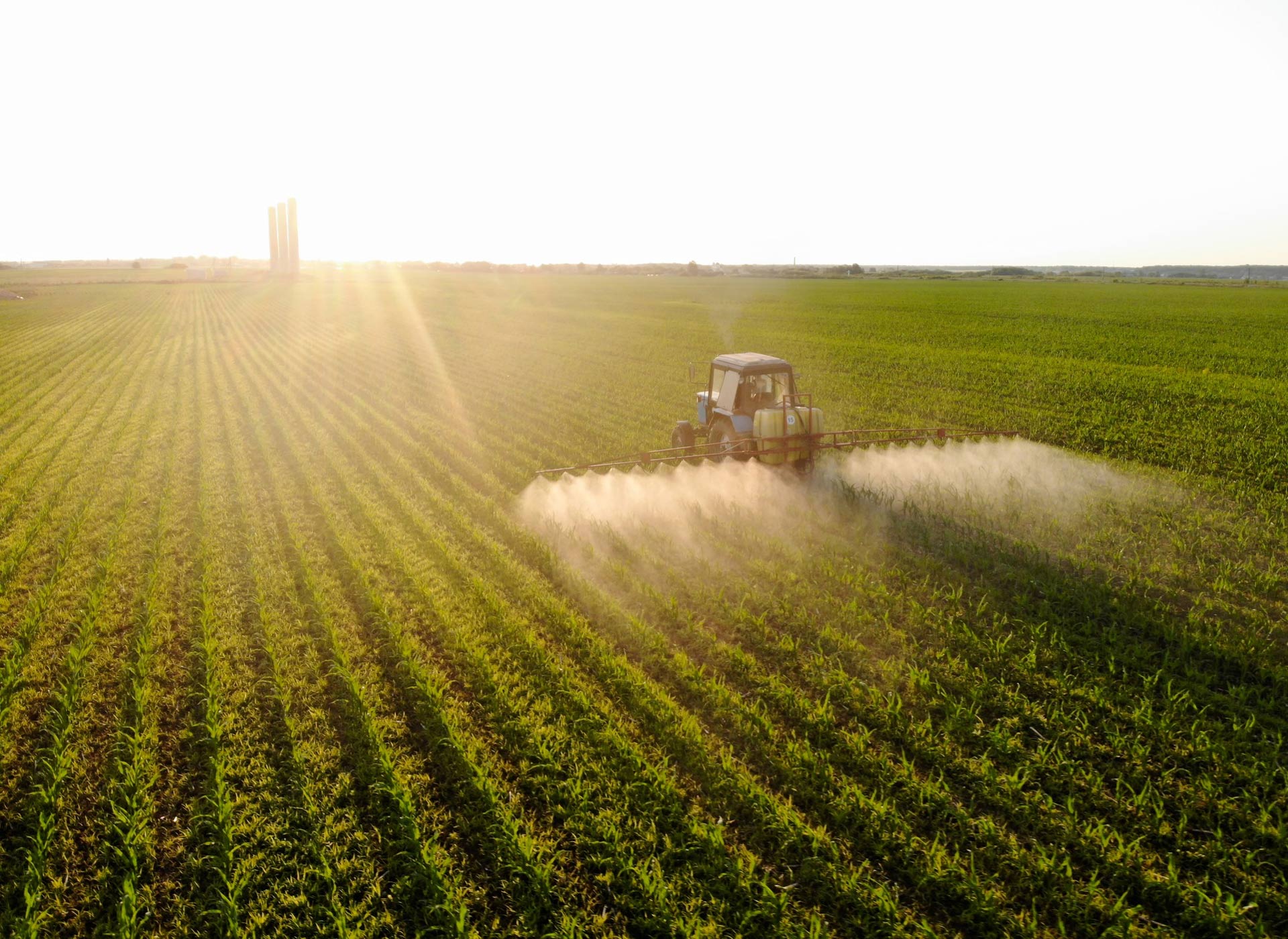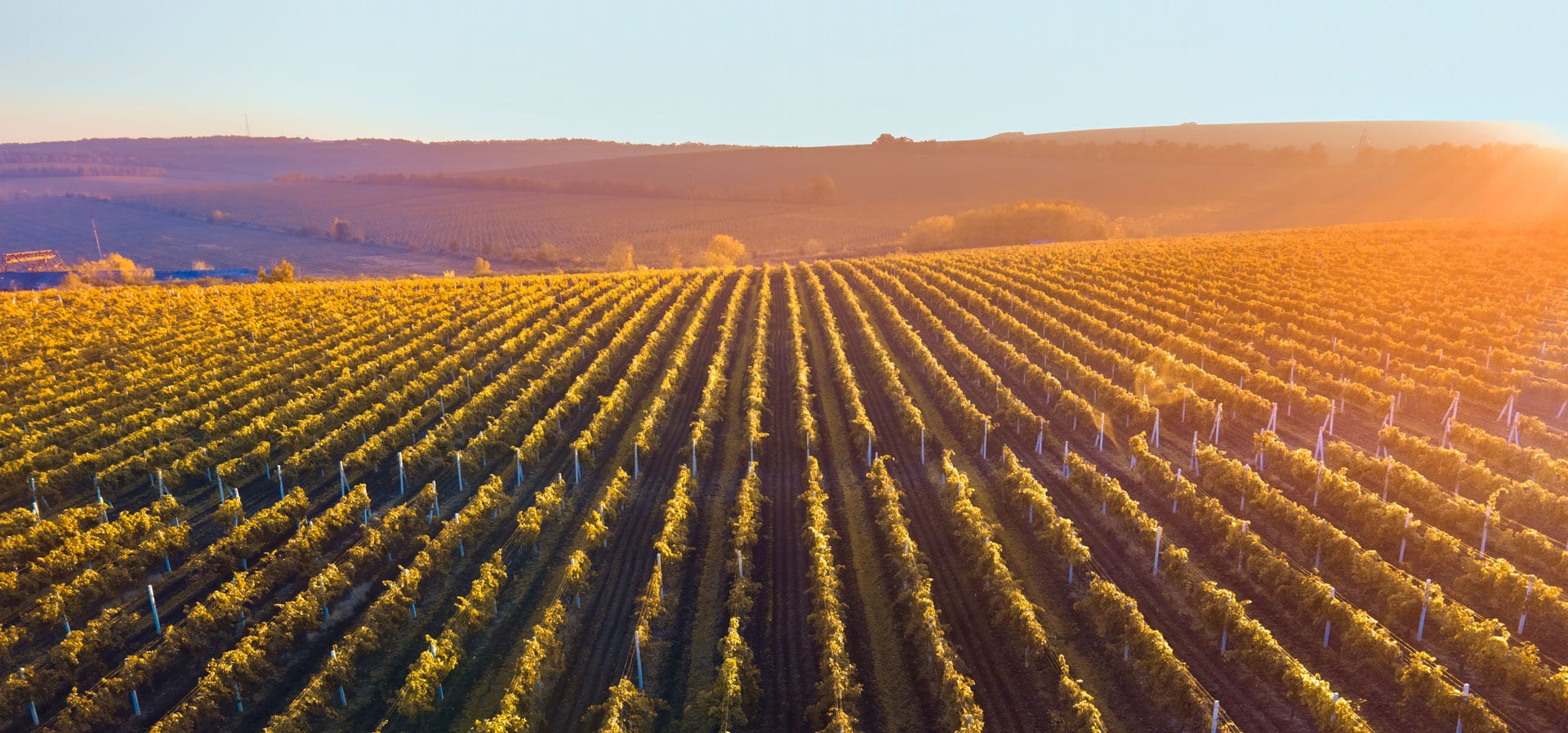Rising temperatures during the summer months pose significant challenges for crops around the world. Extreme heat can negatively affect plant growth and productivity while causing significant economic and food losses, which can be reduced or avoided using the main tools and methods to protect crops from extreme heat.
The consequences of global warming have become more and more apparent in recent years, and agriculture has not been immune to its impact. Crops, the basis of our food supply, face increasingly adverse weather conditions. High temperatures accelerate the evaporation of water in the soil and affect metabolic processes and photosynthesis, reducing the quality and quantity of agricultural products. Faced with this situation, it is essential to develop strategies to mitigate the effects of heat and maintain better yield under extreme conditions.
In this post, we will explore the consequences of heat on crops and introduce some key measures and BRANDT products to mitigate its effects and foster the development of greater agricultural resilience.
- Consequences of Extreme Heat in Plants
- Measures for the Increased Protection of Crops Against Heat
- Ensuring Crop Health and Productivity in Times of Extreme Heat
Consequences of Extreme Heat in Plants

Extreme heat can have various consequences for plants and crops, adversely affecting their growth and development or their ability to protect themselves against pests and diseases. Below, we will examine the main negative effects that can arise when crops are not able to protect themselves against extreme temperatures and strong and continuous solar radiation:
- Hydric stress and loss of yield: High temperatures increase the rate of evaporation and transpiration of plants, which can result in a water deficit and hydric stress. This reduces the ability of plants to absorb nutrients and can lead to a decrease in crop yield.
- It affects photosynthesis: Extreme heat can also have a negative effect on photosynthesis, by damaging the components of the photosynthetic machinery, which reduces the ability of plants to produce energy and nutrients.
- Increased susceptibility to pests and diseases: Heat stress weakens the natural resistance of plants, making them more vulnerable to pests and diseases. This can lead to the appearance of insects and diseases that can decimate crops.
Measures for the Increased Protection of Crops Against Heat
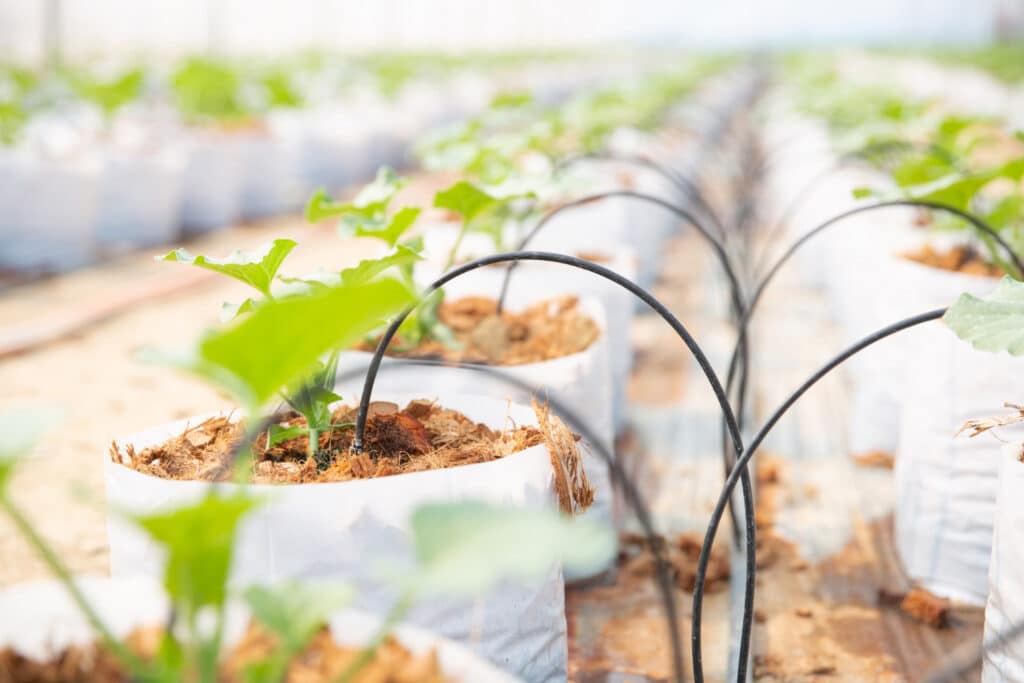
Taking effective measures to protect crops from heat is essential to ensure their resilience in the face of extreme weather conditions, which are more and more frequent and noticeable, especially during the hottest months of the year. It is therefore advisable to implement as many crop protection strategies as possible. Main strategies to protect plants from the effects of extreme heat:
- Irrigation management: Maintaining proper irrigation management is essential. It is important to schedule irrigation to avoid hydric stress and ensure that plants receive sufficient water during periods of intense heat. The use of efficient irrigation systems, such as drip irrigation, can help optimise the water supply. The use of efficient and programmed irrigation technologies, such as soil moisture sensors and automated irrigation systems, can also aid in the prevention of hydric stress and the optimisation of water consumption in crops.
- Shading and mulching: Providing shade to crops through shading structures or meshes can help reduce direct solar radiation and decrease the temperature of the plant environment. Furthermore, the application of mulching, a technique that consists of covering the soil with organic materials such as straw or crop remains, helps to conserve moisture, reduce evaporation and maintain a more stable temperature in the root zone.
- Use of sunscreens: There are sunscreens specifically designed for crops such as BRANDT Crop White SC, which forms a transparent film on the leaves and fruits, reflecting part of the solar radiation and reducing thermal stress. Therefore, applying this product to the aerial parts of plants can help prevent and reduce sunburn and stress caused by exposure to strong solar radiation.
- Use of biostimulants: Biostimulants can strengthen the resistance of plants to different types of abiotic stress, including heat, since their use stimulates the natural defence mechanisms of plants and improves their ability to withstand adverse conditions.
- Proper fertilisation management: Balanced nutrition is essential for correct plant development, as well as to protect crops against conditions of extreme heat. Therefore, it is very important to provide crops with the necessary nutrients in the right amounts and at the right time.
- Choice of heat-resistant varieties: When selecting crop varieties, it is important to consider their heat tolerance. Certain varieties are genetically adapted to withstand higher temperatures and may be better suited to cultivation in areas prone to heat waves.
Ensuring Crop Health and Productivity in Times of Extreme Heat
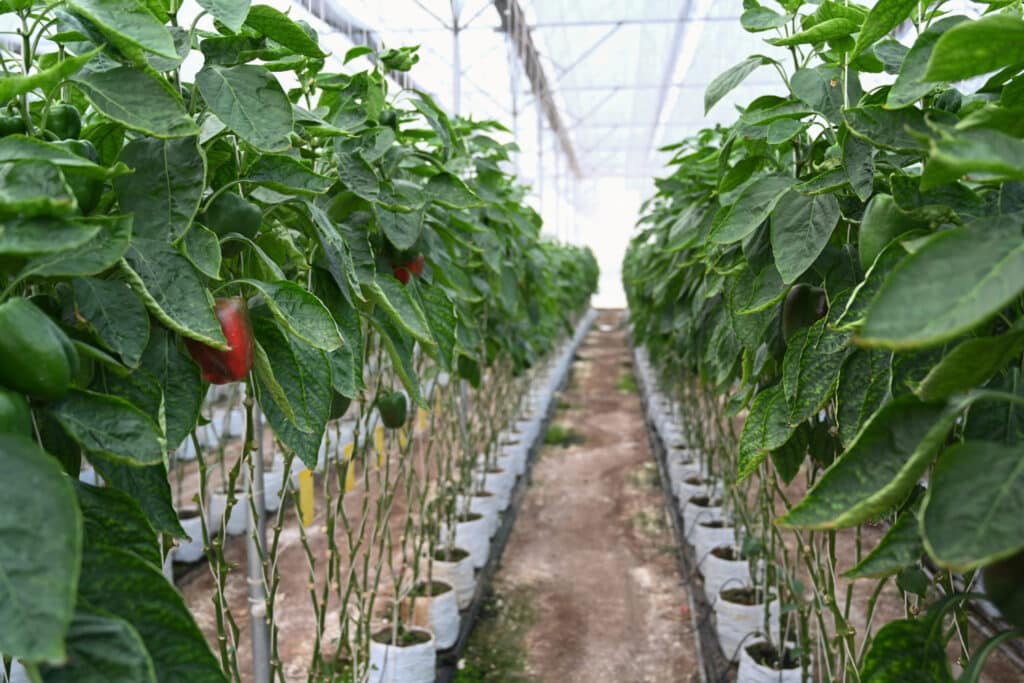
Extreme heat represents a significant challenge for crops, but there are effective measures to reduce its negative effects. Proper irrigation management, shading, the use of biostimulants such as BRANDT InVigo and sunscreens, proper fertilisation, and the choice of heat-resistant varieties are key strategies to protect crops against extreme heat and minimise losses in yield and quality.
Being prepared to face changing and adverse weather conditions is the first step to optimising agricultural production and promoting greater resilience in crops. Maintaining good levels of fertility in crops can therefore be essential for their protection and growth. To achieve this, the BRANDT Smart and BRANDT Reaction ranges of biostimulants, which improve the availability of nutrients in the soil and favour their absorption by the plant, can be a great step towards more stable and sustainable agricultural production, as well as foliar applications of BRANDT Manni-Plex that, thanks to its small molecular weight, can penetrate through the hydrophilic pores of the leaves, since the stomata remain closed in these situations of stress.
As seen above, caring for and protecting crops from the heat is essential to ensure their healthy growth and a successful harvest. Through an appropriate combination of management techniques and preventive measures, we can mitigate the negative effects of extreme heat and safeguard production.
